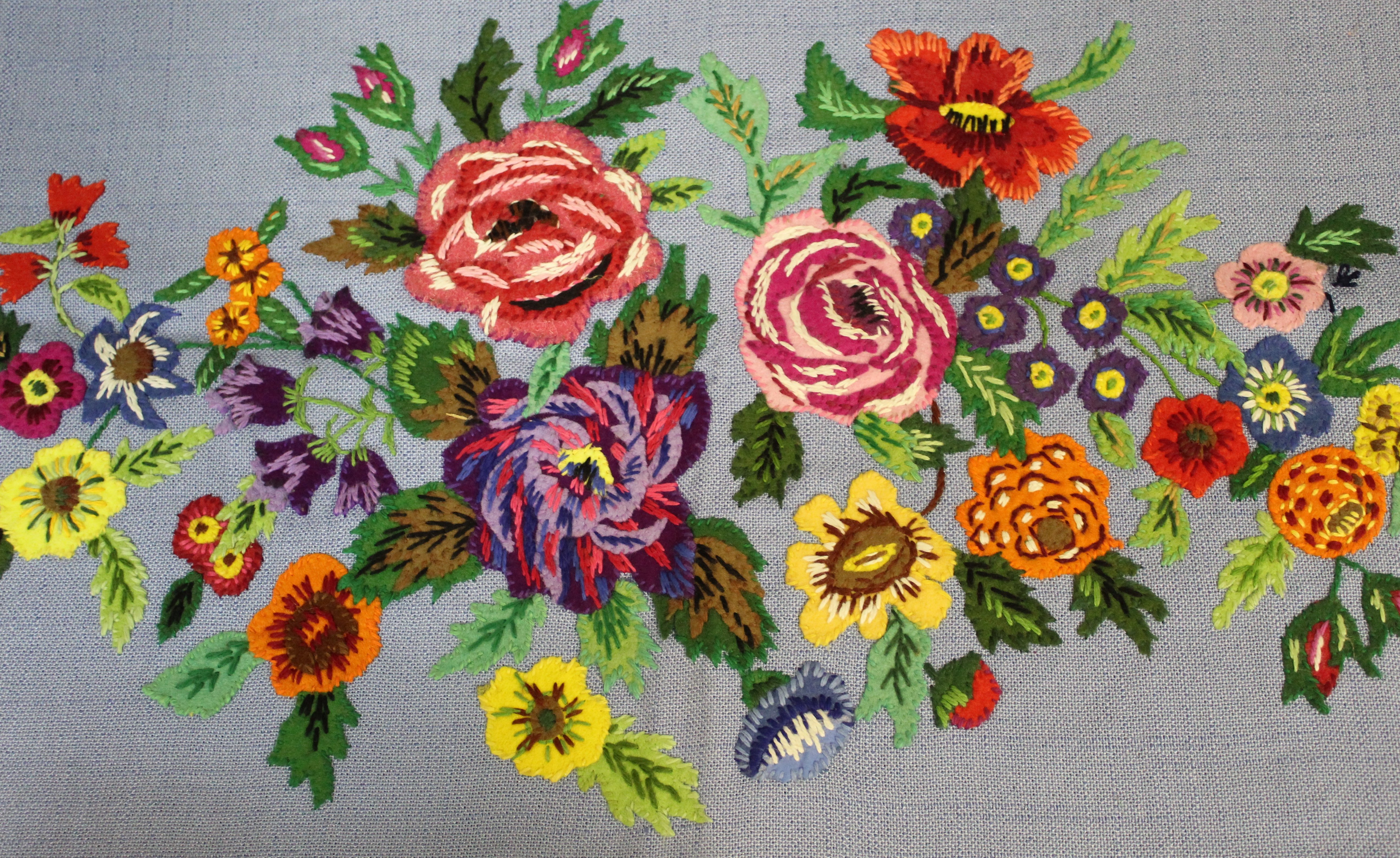Mariya Lyapina (1891–1976) is the middle daughter of Natalya and Vasily Polenov. She was born in Moscow on April 6 (19). She graduated with a gold medal from the A. S. Alfyorova Moscow Women’s Gymnasium in 1909. The same year she entered the women’s agricultural courses, which she completed in 1911.
Mariya Vasilyevna is a person with a hard fate. In May 1913, she married Vladimir Moritz, a philologist and a fine art expert. Their daughter Marina was born in Moscow in 1914. But, this marriage dissolved quickly. Vladimir Moritz left his family in 1920. Mariya Vasilyevna was left alone with her daughter. The woman began working as a seamstress and an embroiderer in the studio of famous Moscow dressmaker Nadezhda Lamanova.
But, it was morally challenging for her to live in Moscow. She wanted to be away from the betrayer. Mariya Vasilyevna and her daughter left for Paris in 1924. She lived all her life there. The woman had possibility to earn for living due to her great artistic taste and ability to sew.
Mariya Vasilyevna married Aleksandr Lyapin in June 1926. He was a former graduate from the Faculty of Philology in the Moscow University. He was also in France as fate would have it. Their son Aleksandr was born a year later. Aleksandr Lyapin, like many other Russians in Paris, was arrested and sent to a concentration camp in June 1941. He fell seriously ill and died in a Paris hospital on July 27, 1944.
The family broke up in 1930. Mariya Vasilyevna was left with two children. But, she went on bravely working and bringing up her children.
Mariya Vasilyevna had also some time for creativity. Her artistic activities were especially active and varied during these years. She successfully mastered new types of artistic crafts. Everything created is original and thoughtful.
Her embroideries of refined flower bouquets, created according to her own sketches, and artistic appliques on fabric are absolutely brilliant.
Associated with Russia both in her thoughts and creativity, Mariya Vasilyevna very closely watched the artistic and literary life of France. She knew French perfectly, so she read a lot of not only classics, but also works of modern French and foreign literature.
For almost 10 years, Mariya Vasilyevna staged performances of Chinese shadows. The repertoire included French folk songs, and during the German occupation, Russian fairy tales, for example, ‘The Little Humpbacked Horse’ by Pyotr Yershov, and dramatizations of the poems by Aleksandr Pushkin.
She was fond of puppet show since 1955. She made puppets from paper-mache, sewed costumes for them and drew scenery. Mariya Vasilyevna involved her niece Denise Weber into this business. The following performances were created: ‘Petya and Wolf’ by Sergei Prokofiev, ‘The Scarlet Flower’, ‘Nightingale’ by Hans Christian Andersen. Depending on the audience, performances were in Russian and French.
She was interested in a fluffy toy in 1968. Mariya Vasilyevna created kind and charming little animals according to her own patterns until the last days of her life. She took part in more than thirty fairs in France. That brought her success.
Mariya Vasilyevna died on April 30, 1976. She was buried in the Russian cemetery of Paris – Sainte-Genevieve-des-Bois. At the request of her son, Mariya Polenova-Lyapina was reburied next to the grave of her parents on the high Oka bank in the cemetery of Bekhovo Village in Russia on December 22, 2007.
The exhibition displays all types of artistic handicraft by Mariya Vasilyevna. You will be able to make sure that taste, beauty and a sense of artistic proportion lie in all the works by Mariya Vasilyevna.
The exhibition runs until January 22, 2023.



